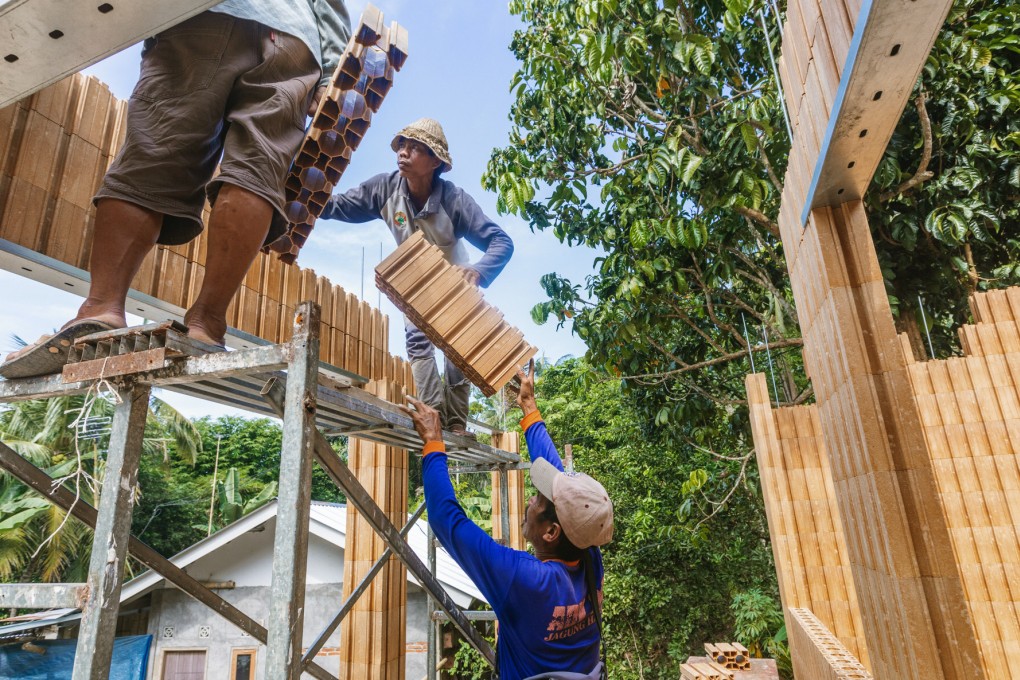School built from recycled plastic in Indonesia offers blueprint for sustainability – and for disaster recovery three years after earthquakes
- Asia’s first school to be built out of recycled plastic Eco-Blocks serves as a model for a rebuilding programme in Lombok following earthquakes in 2018
- A factory to make the recycled plastic blocks will open there soon, creating a use for the plastic waste that pollutes Indonesia’s rivers and seas

Asia’s first recycled plastic “Eco-Block” school has been built in a small, earthquake-devastated village in Lombok, Indonesia.
The pilot project’s success has spawned a new wave of Eco-Block schools slated to begin construction in coming months on the Indonesian island.
The earthquake-resistant five-classroom school was built in just five days in June by a local and international team in Taman Sari village, Mataram district, Lombok, an island rocked by a series of major earthquakes in 2018 that killed 563 people and displaced more than 417,000.
“The earthquakes were horrible for us here in Lombok, with damage caused to 1,138 schools, affecting 218,224 students,” says Lombok’s vice-governor, Sitti Rohmi Djalilah.

Today, almost half those students are studying in temporary shelters, despite efforts by the local government and international aid agencies to rebuild.
In the aftermath of the earthquakes, Classroom of Hope (CoH), an Australian charity that builds schools in Africa and Asia, raised funds to build pop-up schools with local partner Pelita Foundation.